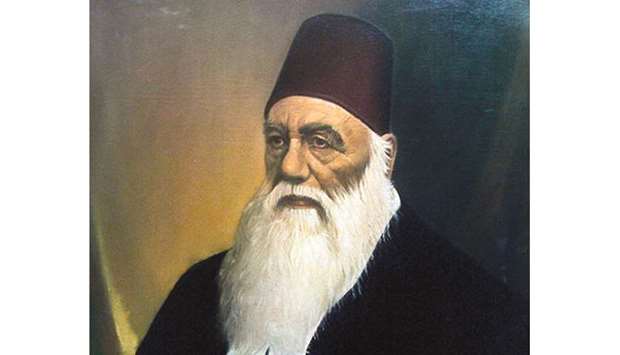Bazm-e-Alig Qatar, AMU Alumni Association’s Qatar chapter, is all set to mark the annual Sir Syed Day on October 24. The association has invited two distinguished guests from India on the occasion. The guests are namely: Professor Abdul Raheem Kidwai, a professor of English literature and scholar, and Asif Azmi, a media personality and social worker.
Talking to Community, Nadeem Mahir, Bazm-e-Alig Qatar president, said: “The alumni of AMU in Qatar founded a forum in 1988 by the name of Bazm-e-Alig-Qatar. Since then, the forum has actively been engaged in promoting social, educational, cultural and professional interaction amongst the alumni community in Qatar.
“It aims to keep alive Sir Syed Ahmad Khan’s dream of ensuring equality for all and particularly the underprivileged through education, by supporting AMU and its students in their academic efforts, and by organising events to highlight AMU’s role in creating a modern India.”
Sharing other objectives of the organisation, Mahir said: “Our aims and objectives include; awarding of scholarships to deserving students at AMU, providing material support to AMU and its affiliated institutions, arranging literary, cultural, sporting, and networking events, honouring outstanding individuals and organisations with appropriate achievement awards, providing assistance if needed to newly arrived AMU alumni and their families to Qatar, and arranging annual Sir Syed Day and benefit dinner.”
Bazm-e-Alig Qatar’s office-bearers are namely: Syed Nadeem Mahir, president; Aqil Mehmood, vice president; Osama Shamsi, general secretary; Arshad Amin, joint secretary; and Tariq Faraz, treasurer.
Nadeem further said: “Professor Kidwai holds two PhD degrees in English Literature. He has been associated with the university for a long time. He has authored and edited numerous books on topics from English Literature to Islamic teachings.
He has regularly been delivering lectures on the relevant topics as well. He is also considered an authority on the life and contributions of Sir Syed Ahmed Khan.”
He added: “Asif Azmi has a long career in media industry in various roles such as journalist, filmmaker and advertising professional. He has also served as an adviser to Doordarshan, Prasar Bharti, Government of India. However, he is best known for his cultural activities that he used to organise and conduct throughout the country and abroad.
“He has written more than hundred articles / research papers and five books including a book on his journalistic articles Jahane Taza- Afkare Taza. He is presently running two successful cultural NGOs i.e. IDEA Communications and The Pen Foundation.”
About Sir Syed, Nadeem said: “He was born on October 17, 1817 in Delhi and started his career as a civil servant. The 1857 revolt against the British rule was one of the turning points in Syed Ahmed’s life. He clearly foresaw the imperative need for the Muslims to acquire proficiency in the English language and modern sciences. He was one of those early pioneers who recognised the critical role of education in the empowerment of the poor and backward Muslim community.
“In more than one ways, Sir Syed was one of the greatest social reformers and a national builder of modern India. He began to prepare the road map for the formation of a Muslim university by starting various schools. He instituted Scientific Society in 1863 to instill a scientific temperament into the Muslims and to make the Western knowledge available to Indians in their own language.”
The president of the association further said: “In 1875, he founded the Madarsat-ul-Uloom in Aligarh and patterned the MAO College after Oxford and Cambridge universities that he went on a trip to London. He wanted this College to act as a bridge between the old and the new, the East and the West. While he fully appreciated the need and urgency of imparting instruction based on Western learning, he was not oblivious to the value of oriental learning and wanted to preserve and transmit to posterity the rich legacy of the past.
“Sir Syed contributed many essential elements to the development of the modern society of the subcontinent. During Sir Syed’s own lifetime, The Englishman, a renowned British magazine of the 19th century remarked in a commentary on November 17, 1885: ‘Sir Syed’s life strikingly illustrated one of the best phases of modern history”. He died on March 27, 1898 and lies buried next to the main mosque at AMU.”

